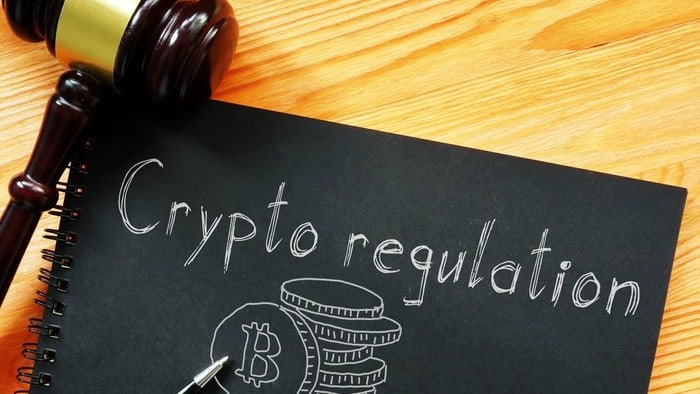This article was originally published on Fool.com. All figures quoted in US dollars unless otherwise stated.
The world of cryptocurrency and blockchain has been the center of a great deal of controversy for some time now: Should it be regulated? How can it be regulated? All these questions have been tossed around without any solid answers from the U.S. government.
Some crypto investors have feared that it'll be regulated into nothingness, so when President Biden announced he would be presenting an executive order regarding crypto, some investors were left holding their breath, including the owners of metaverse real estate and other items secured by non-fungible tokens (NFTs).
But instead of fear and contention, the executive order unveiled on March 9, 2022, seems promising and has many experts in the crypto world breathing a sigh of relief. Here are some pieces of good news coming out of this big day.
1. Crypto and related assets will finally have a uniform set of rules
Currently, much of the regulation of crypto and other assets like NFTs is done through enforcement by both the Securities and Exchange Commission (SEC) and the Commodity Futures Trading Commission (CFTC). Unfortunately, having too many cooks in the kitchen is always a huge mess, even if you're talking about an investment tool.
This executive order mandates that everyone get together and figure out how to be on the same page about blockchain-based investments and how best to regulate them. This brain trust includes the parties you'd expect, including representatives from the Federal Reserve, the Consumer Financial Protection Bureau (CFPB), the Federal Trade Commission (FTC), the Securities and Exchange Commission (SEC), the Commodity Futures Trading Commission (CFTC), the Federal Deposit Insurance Corporation (FDIC), and the Office of the Comptroller of the Currency, as well as other important folks like the Secretary of State, the Secretary of the Treasury, the Secretary of Defense, the attorney general, and many more.
It may not sound like a big deal, but it's actually critical that rules related to the cryptocurrencies you're using to buy your metaverse properties are uniform across the entire government. It'll help project the value of your investments by creating consistency in enforcement when there's trouble, as well as consumer confidence and legitimacy from the simple act of being regulated.
2. The government seems willing to work with the crypto community
Not only is the US government interested in exploring Central Bank Digital Currencies (CBDCs), which are basically a digital form of the dollar, it's looking for guidance from crypto community experts. This legislation will not have an overnight solution, and all agencies involved have been asked to conduct thorough research and submit well-considered reports on all sorts of crypto-related issues.
Inevitably, this is going to mean coming into contact with and listening to the people who are currently involved with NFTs and cryptocurrencies. These are the experts who have the data that will be necessary to formulate a plan of action. Working on problems from within the government is always going to be the easier route for crypto enthusiasts, including owners of metaverse real estate.
The issue of the digital dollar is an interesting one and one that could potentially make purchasing land in the metaverse easier and more attractive to average people looking to take their first steps into metaverse investing. If a CBDC dollar is issued in a way that can easily interact with current crypto markets, exchanging digital dollars for MANA or SAND on the fly would eliminate a lot of barriers to purchase for a lot of potential metaverse investors.
Reducing the steps that are involved in getting into the world of crypto for a first-time investor, such as removing the need to convert fiat dollars into cryptocurrency in order to fund a digital wallet for metaverse buys, may make the entire metaverse a lot less intimidating.
Crypto and metaverse legislation isn't set in stone - yet
Although this first step was a doozy, the executive order issued by President Biden primarily focuses on how to begin to approach regulations that should surround cryptocurrencies and other blockchain assets. It's a big deal simply because it finally exists, after years of politicians simply kicking the rock down the road.
For holders of digital assets, changes are almost certainly coming, but they should be neither swift nor opaque, given the approach that's being taken at the moment. Having experts from within the crypto community help with research will help protect the interests of investors while the very laws that will finally give crypto assets wider real-world integrity are being crafted.
I suspect that once people feel more secure about purchasing metaverse land backed by NFTs, since there will be laws and regulations in place to protect from the worst actors, they'll become an even more important part of the crypto asset pool.
This article was originally published on Fool.com. All figures quoted in US dollars unless otherwise stated.









